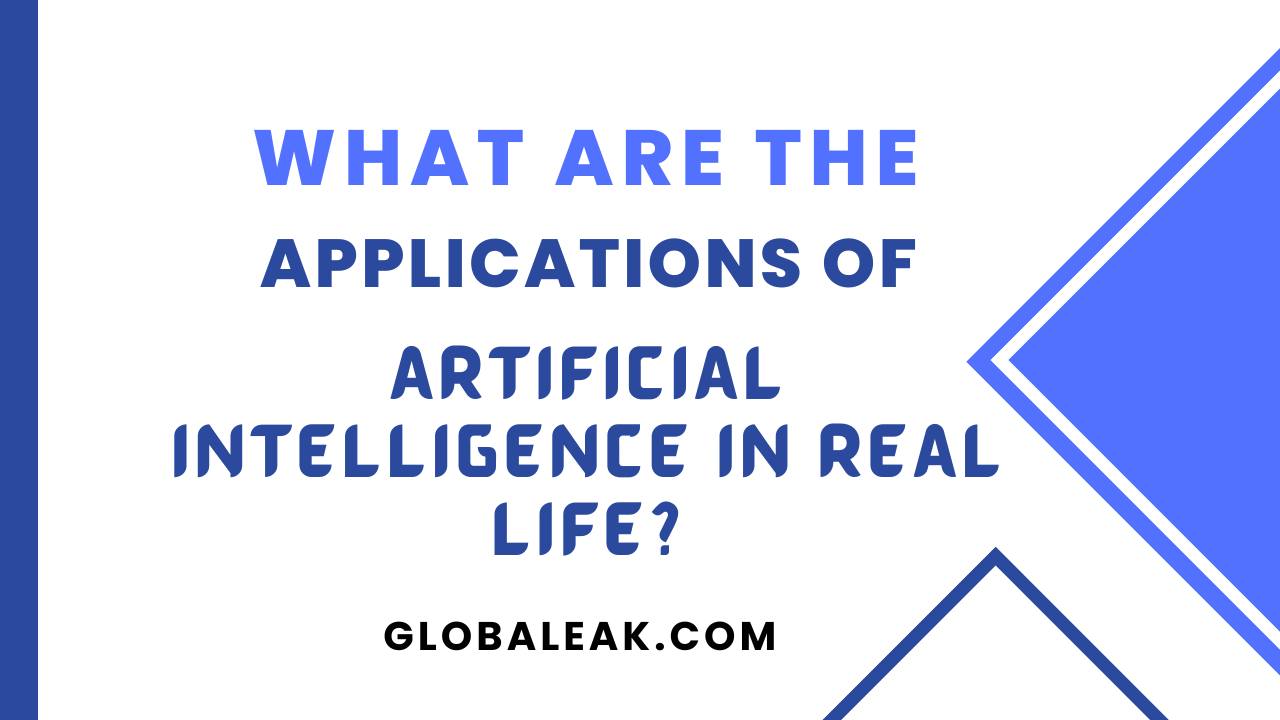Introduction:
Artificial Intelligence (AI) refers to the development of computer systems that can perform tasks that typically require human intelligence. These tasks include things like visual perception, speech recognition, decision-making, language understanding, and problem-solving.
AI systems are designed to mimic human cognitive functions, and they do this by processing large amounts of data and learning from it to make informed decisions or perform tasks without explicit programming for each specific scenario.
Personal Assistants
Virtual personal assistants like Siri (Apple), Google Assistant, and Amazon’s Alexa use AI to understand and respond to user queries, perform tasks, and provide information.
Healthcare
AI is used for tasks like medical image analysis, drug discovery, personalized treatment plans, and virtual health assistants. It can help improve diagnostics, monitor patient health, and streamline healthcare processes.
Autonomous Vehicles
AI algorithms are crucial for self-driving cars and autonomous vehicles. They enable vehicles to perceive their environment, make decisions, and navigate safely.
Finance and Banking
AI is used for fraud detection, risk assessment, customer service chatbots, investment management, and algorithmic trading. It helps improve security and efficiency in financial transactions.
E-commerce and Recommendations
AI algorithms power recommendation engines on platforms like Amazon and Netflix. They analyze user behavior and preferences to suggest products or content.
Natural Language Processing (NLP)
NLP applications include language translation, sentiment analysis, chatbots, and speech recognition. This allows for more sophisticated interactions with computers using human language.
Gaming
AI is used to create intelligent non-player characters (NPCs) in video games. These characters can learn from player behavior and adapt their strategies.
Smart Assistive Technologies
AI-powered devices and applications assist people with disabilities, such as speech-to-text software, screen readers, and mobility aids.
Smart Home Automation
AI-driven systems can control various aspects of a smart home, including lighting, heating, security, and entertainment, based on user preferences and habits.
Education
AI is being used to develop personalized learning experiences, adaptive learning platforms, and intelligent tutoring systems that can cater to individual student needs.
Content Creation and Curation
AI tools can generate written content, including articles, reports, and social media posts. They can also assist in content curation by identifying and aggregating relevant information.
Cybersecurity
AI is used to detect and respond to cybersecurity threats in real-time. It can identify patterns of suspicious behavior and help protect against attacks.
Predictive Maintenance
AI-powered systems can predict when equipment or machinery is likely to fail, allowing for maintenance to be performed before a breakdown occurs.
Weather Forecasting
AI helps meteorologists process and analyze large volumes of data to make more accurate and timely weather predictions.
Environmental Monitoring
AI is used in various environmental applications, including monitoring air and water quality, analyzing climate data, and managing natural resources.
Supply Chain and Logistics
AI can optimize routes, predict demand, manage inventory, and improve overall efficiency in supply chain operations.
These are just some of the many applications of AI in real-life scenarios. As the field of AI continues to advance, we can expect to see even more innovative and impactful uses emerge across various industries and sectors.
📍 English Language Educator | Blogger & Content Strategist | 7+ Years in Educational Blogging
Nosheen Bashir is a dedicated English teacher and experienced blogger with over seven years of expertise in content creation and educational writing. Passionate about language, literature, and effective communication, she combines her teaching experience with blogging skills to create insightful, research-backed content that helps learners and educators alike.
🔹 Expertise & Achievements:
✔ English Language Education: A skilled educator with years of experience in teaching English grammar, literature, and communication skills to students of varying levels.
✔ Educational Blogging: Running a successful blog for 7+ years, delivering well-structured, engaging content on language learning, writing techniques, and academic success.
✔ SEO & Content Strategy: Specializes in creating high-ranking, authoritative articles that follow Google’s EEAT principles, ensuring content that is both informative and search-friendly.
✔ Student-Centric Approach: Committed to making English easier, engaging, and accessible, helping readers and students improve their language proficiency.
🚀 With a passion for teaching and writing, Nosheen Bashir is dedicated to crafting educational content that empowers students, teachers, and language enthusiasts worldwide.



![Artificial Intelligence [AI]](https://globaleak.com/wp-content/uploads/2024/03/Artificial-Intelligence-AI-300x300.webp)





